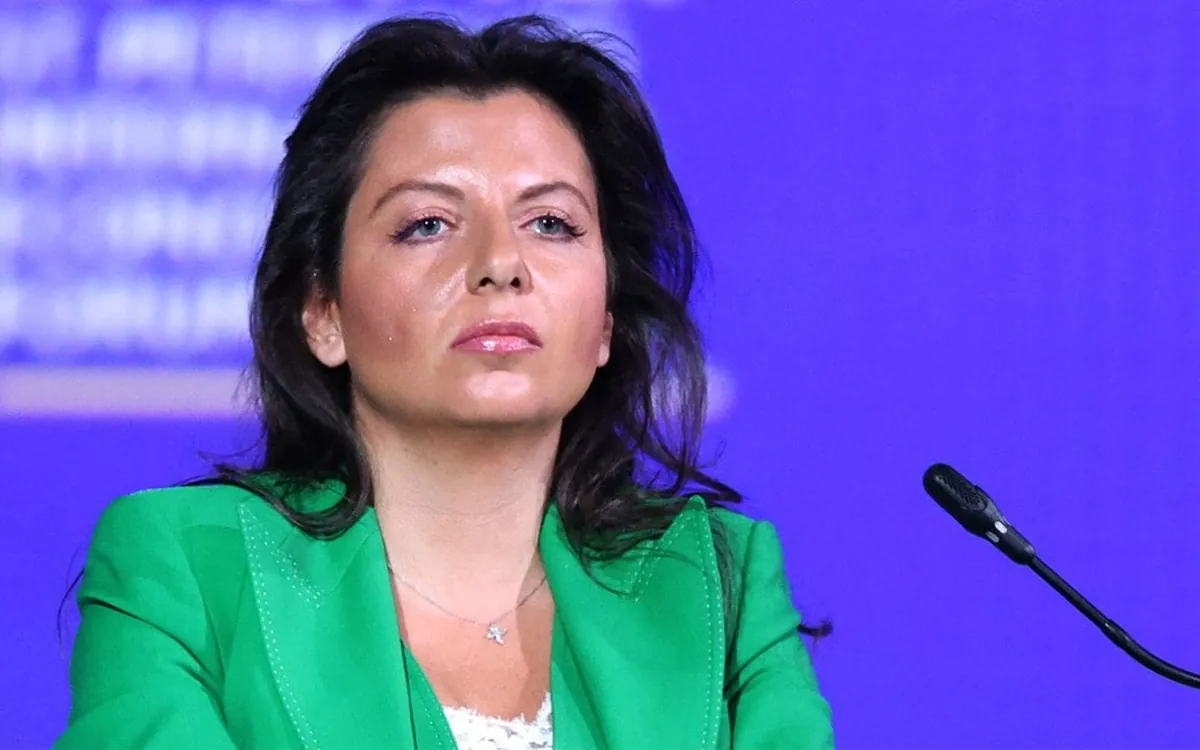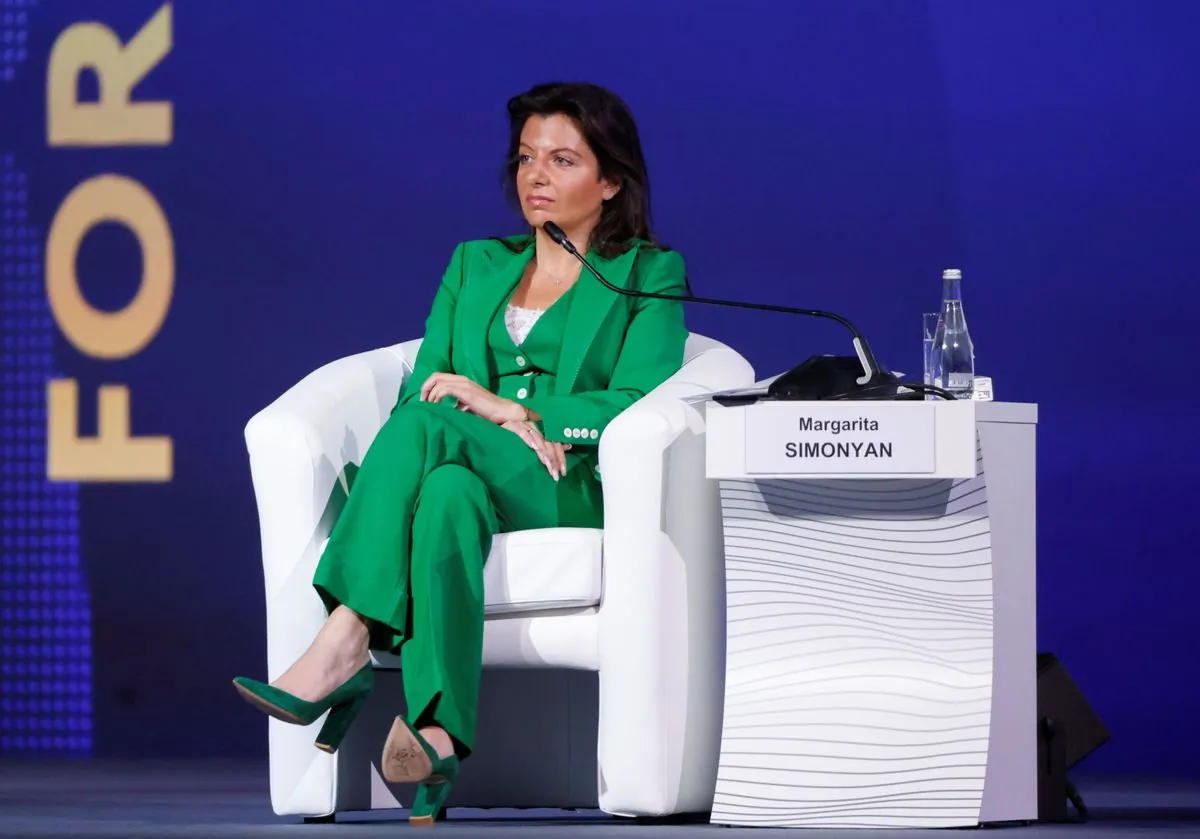RT Chief Admits Kremlin Control, Boasts of Covert US Operations
Margarita Simonyan, head of Russia's RT network, openly acknowledges Kremlin oversight and covert US activities. US authorities respond with sanctions and indictments against RT employees.

Margarita Simonyan, the head of Russia's state-owned RT television network, has publicly acknowledged receiving directives from the Kremlin and conducting covert operations in the United States. This admission comes as US authorities intensify their efforts to counter Russian influence campaigns.
In a recent broadcast on Russian state television, Simonyan addressed US officials directly, stating, "All the employees of RT and the editor-in-chief only obey the orders of the Kremlin!" This statement contradicts previous denials by Russian officials regarding foreign influence operations.
The US Department of Justice has recently taken action against RT, indicting two employees for money laundering related to a scheme that allegedly paid American right-wing influencers to disseminate Kremlin propaganda. This operation is believed to be part of a broader Russian campaign to influence the upcoming US presidential election and undermine support for Ukraine.

Simonyan, who has been at the helm of RT since its inception in 2005, has a unique background that includes spending a year in the United States as a teenager. This experience has informed her rhetoric and propaganda strategies, often criticizing American education and culture.
"In Western countries including the United States, we started to work covertly. We organized a number of guerrilla projects. I won't say if these are the projects about which the United States is accusing us, or different ones."
The US Treasury Department has responded by sanctioning Simonyan and eight other RT employees, describing her as "a central figure in Russian government malign influence efforts." Additionally, US authorities have shut down 32 internet domains associated with these operations.
Simonyan's role extends beyond RT, as she also heads Rossiya Segodnya and Sputnik news agencies. These organizations are crucial components of Russia's global disinformation strategy, which aims to sow division in the United States and its allies, undermine American democracy, and bolster support for Russia's preferred political candidates.
The RT chief has made controversial statements about Ukraine, referring to Ukrainians as "Nazis" and suggesting that Ukraine "as it was can't continue to exist." These comments have drawn criticism from various quarters, including the late Russian opposition leader Alexei Navalny.
RT, founded in 2005, has faced regulatory challenges in several countries and has been accused of promoting conspiracy theories and alternative narratives. Despite these controversies, the network has won several media awards and maintains a significant online presence with millions of followers on social media platforms.
As tensions between Russia and the West continue to escalate, the role of state-funded media outlets like RT in shaping international narratives remains a contentious issue. The ongoing investigations and sanctions highlight the complex interplay between media, politics, and national interests in the modern information landscape.


































